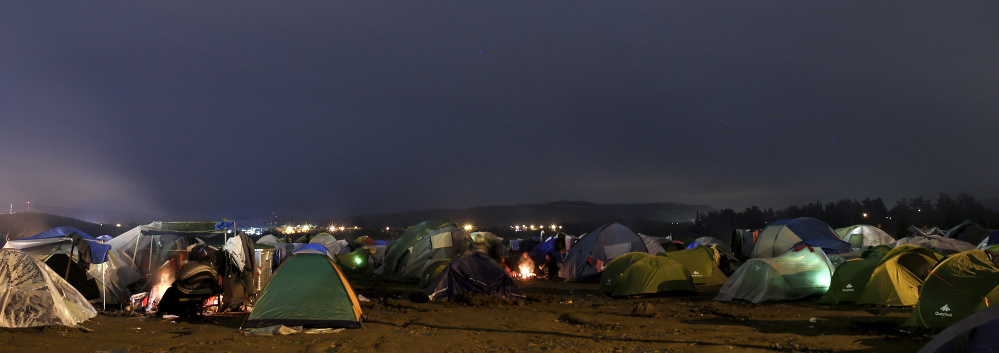ATHENS, Greece — Government officials in Greece signaled Saturday that implementation of a migration agreement between the European Union and Turkey could only occur gradually, with key details still to be worked out on how migrants newly arriving from Turkey will be processed and returned.
Prime Minister Alexis Tsipras met ministers and senior officials involved in the migration crisis, hours after the deal was reached in Brussels to send back migrants arriving on the Greek islands to Turkey, starting Sunday.
Hours before that implementation was due to start, it remained unclear how migrants would be sent back.
Greek officials had previously suggested that the European border protection agency Frontex could escort chartered private vessels back to Turkey.
Yiannis Balafas, the deputy interior minister, said swift screening procedures in the Greek islands would require additional staff promised by the European Union.
“(Migrants) will be returned after they have been swiftly processed. That is why we need the technical assistance,” Balafas told private Mega television.
In central Athens, several thousand migrants staged protests against the EU-Turkey deal. Afghan migrants marched to the EU commission building in the center of the capital, chanting “Open the borders” and “We are human.”
Protests also were held in other parts of Greece, including Thessaloiniki in northern Greece and on the island of Lesbos.
Several thousand people gathered in Spain’s northeastern port city of Barcelona to protest against what they called Europe’s “racist and uncaring” approach to migrants.
Greece is expecting some 2,300 European experts, including migration officers and translators, to help implement the deal.
“Obviously, none of those people have arrived yet,” a government official told the AP, asking not be identified pending official announcements. “What we have at the moment is a political decision. This must now be put into practice.”
Migrants on Lesbos and other islands in the east Aegean Sea were being taken by ferry to the mainland ports of Piraeus and Kavala, where they will be placed in shelters and eligible for an EU-wide relocation program.
“Migrants on the islands will be moved to mainland shelters, including 2,500 people on Lesbos who are being transported to three different shelter locations,” the government officials said.
From Sunday onward, migrants who arrive on the islands will be screened and their identity recorded before being sent back to Turkey.
Germany’s interior minister said the Balkan route that migrants have been using to reach Central Europe is “finished” now that Turkey has agreed to take back people who arrive in Greece illegally.
In a statement Saturday, Thomas de Maiziere described the deal between the European Union and Turkey as a “turning point in the refugee crisis.”
De Maiziere said Germany will send border police and immigration staff to help Greece process any new arrivals.
His ministry said the number of migrants reaching Germany is now down to about 100 a day, a sharp decrease from the thousands who were arriving in the country daily last year.
Send questions/comments to the editors.




Success. Please wait for the page to reload. If the page does not reload within 5 seconds, please refresh the page.
Enter your email and password to access comments.
Hi, to comment on stories you must . This profile is in addition to your subscription and website login.
Already have a commenting profile? .
Invalid username/password.
Please check your email to confirm and complete your registration.
Only subscribers are eligible to post comments. Please subscribe or login first for digital access. Here’s why.
Use the form below to reset your password. When you've submitted your account email, we will send an email with a reset code.